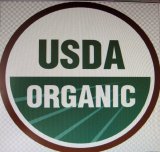|
Are Health Foods Really Healthy? Not all so-called "health foods" are created equal. First we need to recognize that all healthy foods are prepared in Mother Nature's kitchen. People or companies do not create food. We can help to grow foods and we can modify them, but we do not fashion them "from scratch". Only the natural processes of organic life on Earth can perform this miracle. 
Foods can be refined and processed to make them more attractive or palatable, but these processes usually result in a reduction in a food's nutritional value, not an increase. Therefore, we feel that good old "common sense" is our best resource for determining whether a food product is really healthy, or not. Health FoodsThe term "health food" is used to suggest that a particular food product is a superior alternative to other ordinary foods. A few examples of foods considered to be health foods include energy bars, granola, tofu and soy milk and sprouts. First, let's take a look at sprouts. They require special care to grow and store properly but they are packed with vital nutrients and can be much more nutritious than, say, iceberg lettuce. Therefore sprouts would seem to qualify as a legitimate "health food". What about prepared granolas? They may be no different than many other cereal preparations except that they are less processed. The grains haven't been milled down and then reconstituted into flakes, chex, nuggets or loops. Granola gets a plus for being less processed than common cereals. But they're still grains and they have an acid yield on the body when digested. Also they are high on the glycemic index which can cause spikes in insulin production. Therefore granolas do not represent a considerably more nutritious alternative to ordinary cereals. Like all grain products, they should be eaten only in moderation. The same reasoning applies to energy bars, which are really nothing more than candy bars filled with granola, dried fruits and nuts rather than cake, caramel and chocolate. They're still basically grains with a lot of concentrated sugars and should be eaten very sparingly. Soy products like tofu and soy milk can be very nutritious but they are still basically reconstituted soybeans. They don't have any of the saturated fats that come with cheese, yogurt or milk. But they have concentrated protiens which produce a strongly acidic effect on the body's pH when digested and, like dairy products, they should only be eaten in moderation. The bottom line is, just because a "health food" may be less processed than other food products, don't assume that such a food is a guilt-free alternative that can be consumed with total abandon. Natural FoodsWhen a food label touts a product as being "all natural" or having "no artificial ingredients" it usually means that it doesn't contain any artficial chemicals like preservatives, msg, food colorings, etc. Howevere it still may contain salt, sugar, high fructose corn syrup, hydrogenated fats and binders among other non-nutritious and even potentially harmful ingredients. Therefore just because the label has the words "all natural", it's still a good idea to read the label and the list of ingredeints before you decide to buy. Organic FoodsThe term "organic foods" generally applies to all foods, including animal products, that are grown and processed under organic conditions. This means that the plants were not genetically modified, grown with artificial fertilizers, herbicides or pesticides and the animals were not force-fed in feed lots to fatten them up but allowed to forage naturally (free-range) for themsleves. Also the animals must not have been injected with hormones, drugs or antibiotics. 
The actual protcol that must be followed by the grower to merit the "certified organic" label for his food product is rigorous and subject to periodic inspections by the USDA. But today organic foods, which used to be fairly rare just a decade ago, are now commonly found in the major supermarkets. The best news regarding organic foods is that more and more people are now adding them to their shopping carts. As a result, prices for organic produce are now only slightly higher than conventionally grown produce and, with the higher turnover of inventory, the organic produce available is usually just as fresh as the conventionally grown produce. This is a win-win siuation for everyone including the organic growers and the buying consumers. In our opinion, the time has come to start buying organic foods and to contribute to take advantage of a continually improving symbiotic relationship. Check out your favorite grocery store and see what's available. Many stores now have health food departments which may offer an assortment of frozen, bottled and canned foods which are labeled organic. Some of these items may be quite expensive while others may be comparably priced. Most importantly, see what's available in the produce department and concentrate your organic food shopping there. In particular, take advantage of the organically labeled produce from the list of the "dirty dozen" foods. The "dirty dozen" is a list of the twelve conventionally grown food products that are the most likely to contain high levels of pesticide and herbicide residues or to have been genetically modified. If your grocer stock these produce items organically grown, then this would be an excellent place to start your switch from purchasing conventionally grown produce to organic.
The Dirty Dozen
The Clean 15At the other end of the produce spectrum is the"clean 15". These are items that tests have shown to be relatively free from chemical contamination after being pealed and prepped;
There is one more thing we need to consider concerning vegetarian nutrition... Return to Vegetarian Nutrition from Health Foods
|
